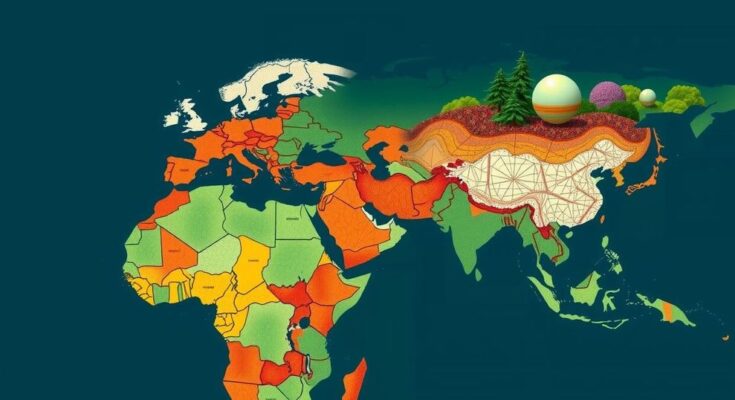Wealthier countries are initiating compensation for climate change damages in poorer nations, highlighted by financial assistance to victims of Cyclone Freddy in Malawi. This initiative, part of a global funding mechanism, seeks to address loss and damage caused by climate disasters. However, many experts warn that current financial pledges are insufficient to meet the growing needs of developing countries facing severe climate impacts.
Wealthier nations are beginning to compensate poorer countries for damages caused by climate change, particularly in the wake of increasing natural disasters. Following Cyclone Freddy, which devastated southern Malawi in 2023, affected individuals like Christopher Bingala received financial assistance to rebuild their lives. This compensation is part of a pioneering initiative focused on addressing the adverse effects of climate change through a dedicated funding system. With significant disasters worsening, experts emphasize the urgent need for more substantial financial support from affluent nations to assist developing countries that contribute minimally to global emissions. Negotiations regarding the allocation of these funds are taking place at the COP29 climate summit in Baku, Azerbaijan, amidst growing recognition of the increasing financial toll climate change exacts on vulnerable nations.
As the frequency and magnitude of climate-related disasters rise, developing nations, already burdened with debt, are seeking assistance for both immediate recovery and long-term resilience. Funding to address loss and damage is essential, but much of the pledged support remains unallocated, with many arguing for broader uses of these investments beyond disaster recovery. The consequences of climate change pose an escalating risk, urging a reevaluation of responsibilities and prompt action from wealthier nations to avert wider humanitarian crises.
The urgency of climate change has prompted a critical reassessment of international responsibilities. Poorer nations are disproportionately affected by the repercussions of climate change, despite their minimal contributions to greenhouse gas emissions. As extreme weather events become more frequent, a system for compensating loss and damage has been initiated, aiming to provide financial relief to these vulnerable populations. This funding is particularly timely, as it addresses both immediate relief and the longer-term impacts of climate crises, interconnected with systemic financial challenges faced by developing nations.
The establishment of a funding mechanism aimed at compensating poorer nations for climate-induced damages is a significant step toward addressing global inequality in the face of climate change. With ongoing negotiations at the COP29 summit, it is crucial for wealthier nations to fulfill their commitments and enhance their contributions. The growing need for loss and damage funding, particularly in light of escalating climate disasters, underscores the imperative for robust global cooperation and accountability in addressing the climate crisis and its socioeconomic impacts on vulnerable populations.
Original Source: www.southcarolinapublicradio.org




